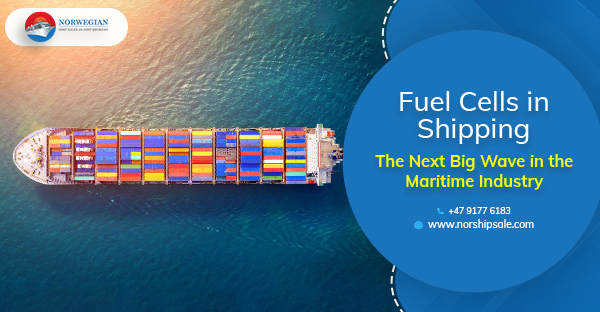Having proved their success and effectiveness in powering vehicles like trucks, forklifts, and passenger trains, fuel cells are now making their inroads into the shipping industry. Shipping companies and manufacturers are motivated to integrate fuel cells into marine vessels for realising the objective of zero-emission marine propulsion. With the governments releasing mandates on GHG reduction, ship and cruise ship brokers encourage ship owners to invest in eco-friendly ships. Since the fuel cell power system is expected to become more viable and propel a greater number of river vessels shortly, you may want to know all about it before investing in sustainable shipping.
Advantages of Using Fuel Cells
Flexible Configuration –
As fuel storage elements and power generation are separate in fuel cells, they offer greater flexibility in ship manoeuvring and operations. Due to the flexible configuration, a fuel cell can adapt to the space constraints of the vessel. Not only can it be divided into several modules, but the fuel cell can also be positioned at varying locations of the ships.
Substantial DC Power –
As a source of DC power, fuel cells are compatible with hybrid battery-electric architectures. They can be installed in dispatchable configurations to address the power requirements of auxiliary power systems and hybrid-electric propulsion. And according to the cruise ship brokers, the emergence of hybrid-powered ships will see greater adoption of fuel cells in near future.
Modular Power Systems –
Underpinned on the modular technology, the fuel cells can be used to power vessels boasting of capability between 100kW to 1MW or more. The modular system is a new concept in the field of self-sustaining energy supply and its objective is to design efficient and low-cost fuel cells for marine applications.
In Which Vessels Can You Apply Fuel Cells?
Tugboats –
Fuel cells can power zero-emission propulsion on vessels like self–propelled ships and barges that are towed by tugboats and push-boats. However, in most tugboats, large-capacity battery systems are the main power source, while the hydrogen fuel cells act as the auxiliary power source. For example, Tokyo Kisen, the Japanese tug operator, is pioneering the manufacture of cutting-edge “e5 Tug” based on the combination of fuel cell and battery systems.
Ferries –
Whether you plan to buy a small or large ferry in future, keep in mind that fuel cells are soon to run these river vessels as well. As they deliver DC power, a fuel cell can provide power to be distributed across the ferry for miscellaneous electrical needs like heating, lighting, air conditioning, and so on.
Cruises –
Cruise shipping is an application area that can attract the maximum chunk of fuel cell’s uses. Since various cruise ship ports carry out zero-emission operations, the fuel cell is a viable choice of power for them. Right from generating power for the emergency system to hotel loads, this sustainable source of power can help the cruising industry meet its ambitious zero-emission targets. To know more, you can contact the cruise ship brokers and find out the latest market trends.
Conclusion –
As an effective zero-emission solution, a hydrogen fuel cell offers a lot of potential for marine vessels and will enable the marine sector to abide by the zero-emission regulations. To discuss the latest market trends, capabilities, and technologies of the shipping industry, you can get in touch with Norwegian Ship Sales.


